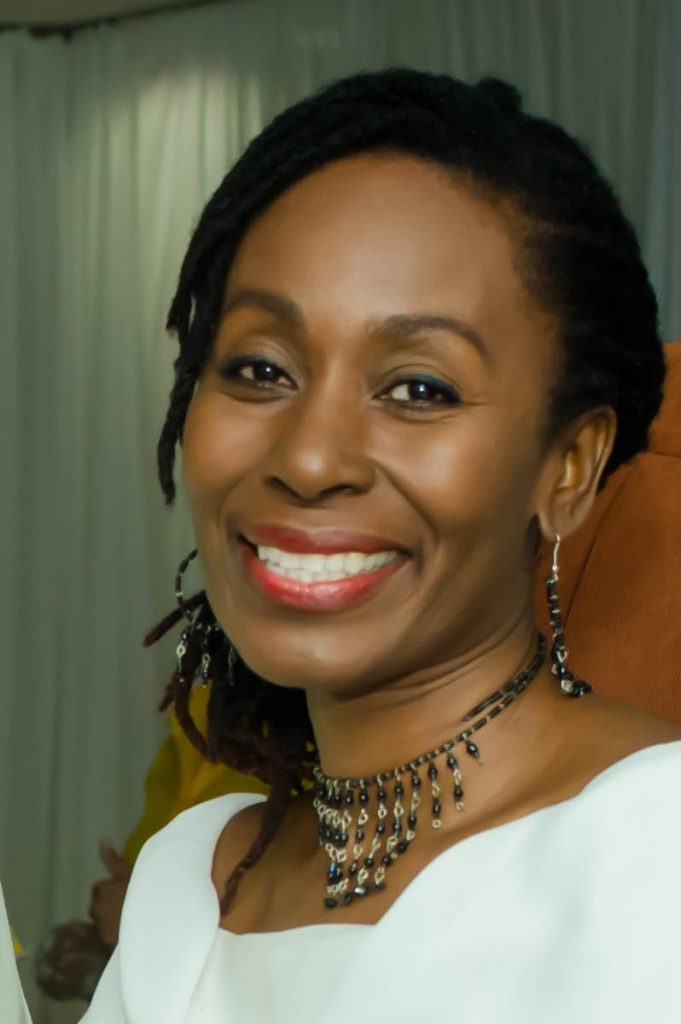Blood lessons

Culture Matters
Choosing to Challenge
“A landscape which is created of a catastrophe is one that attracts in a sense, other kinds of catastrophes. And until we recognise that, we cannot in fact exorcise that kind of catastrophe.”
– Kamau Brathwaite
“Leave me alone.”
– Calypso Rose
THE RAIN was persistent this week. It was as if the energies that move among us understood that there was a need to cool our space. Kamau Brathwaite wrote of the “echoes of violence in our geo-psychic” space. I thought I understood what he meant. As I watched news reports of another family tragedy in Embacadere, his voice played again in my head.
Violence in our societies has been a theme of Caribbean literature for decades. Our writers and intellectuals have explored the way we resolve conflict, discipline children and negotiate intimate relationships.
Frantz Fanon, writing in the context of colonialism and enslavement, recognised the presence of violence in the language of the colonisers. He saw it in the way society was organised under colonial rule. His analysis continues to ring true.
Our country is perhaps the only nation in the world to have resorted to violent conflict to save Carnival. In the 19th century, ordinary citizens felt they had to take revolutionary action to protect a cultural expression that was in danger of being completely suppressed by the ruling elite. Almost every time the people created, their expressions were banned, their homes were raided or they were shot at.
I am familiar with the community of Embacadere. It is like the one I grew up in – an abundance of concrete, dark staircases, lack of privacy and limited choices. As a student of dance, I chose to highlight the achievements of a family of dancers from that community who had been successful in Best Village competitions. The small apartment mirrored our old one in Laventille, but like ours, it felt like home.
While it is good that the Gender-based Violence Unit of the police service will give the family counselling, how long will this intervention last? One week or one month? Three months? I wonder about the two-year-old boy sitting in the blood of his mother. What strategies are we using to treat with the life that he potentially faces? And what of the seven-year-old boy who it is said his father was choking?
Fanon wrote that laws were not just part of the colonial way of maintaining control. It was one of the methods they used to indoctrinate a society that had a different culture from their own. TT is signatory to numerous international conventions, including the Convention on the Rights of the Child and the Convention on Elimination of All Forms of Domestic Violence against Women. We have a Children’s Authority and local laws designed to protect women and children.
Yet, as the colonials discovered, it is not possible to legislate responsible behaviour. Even if we implemented the legislation, how does this impact what else is happening in the society? In our families? For the children covered in blood and rage and tears, what solutions exist for those inside small concrete apartments surrounded by not enough hope.
Civil society is exhausted. Too often the services of these citizens are called upon when so much damage has already been done. In schools and communities they face young women who view their bodies as bargaining chips and young men who agree. Parents struggling to survive and no energy to participate in interventions. Predators, everywhere. Too often their services are used fleetingly, with not enough time or resources allocated to making real changes.
Covid19 has intensified the isolation and the police arrive when there is blood. Of course there are many who have achieved, there are many who strive. In Embacadere, Laventille, Marabella or other communities like these, there are many who wake each day with hope and a desire to do better.
“Boy doh touch me/Like you going crazy/Let go me hand/Lemme jump up in d band.” The rain creates a mist of clouds in the mountains. The pink poui blooms. Vehicles go about their business.
On the surface, our islands are tranquil, moving through life as we do our best against a pandemic. Below the calm landscape, too many catastrophes; too much blood. Violence echoes yet the solutions that lie with our calypsonians, dramatists, pannists, pichakaree singers or storytellers are ignored. How much more blood and rage and tears before we transform our landscape?
I am not sure. I am not yet finished with these thoughts...
Dara E Healy is a performance artist and founder of the Indigenous Creative Arts Network – ICAN


Comments
"Blood lessons"